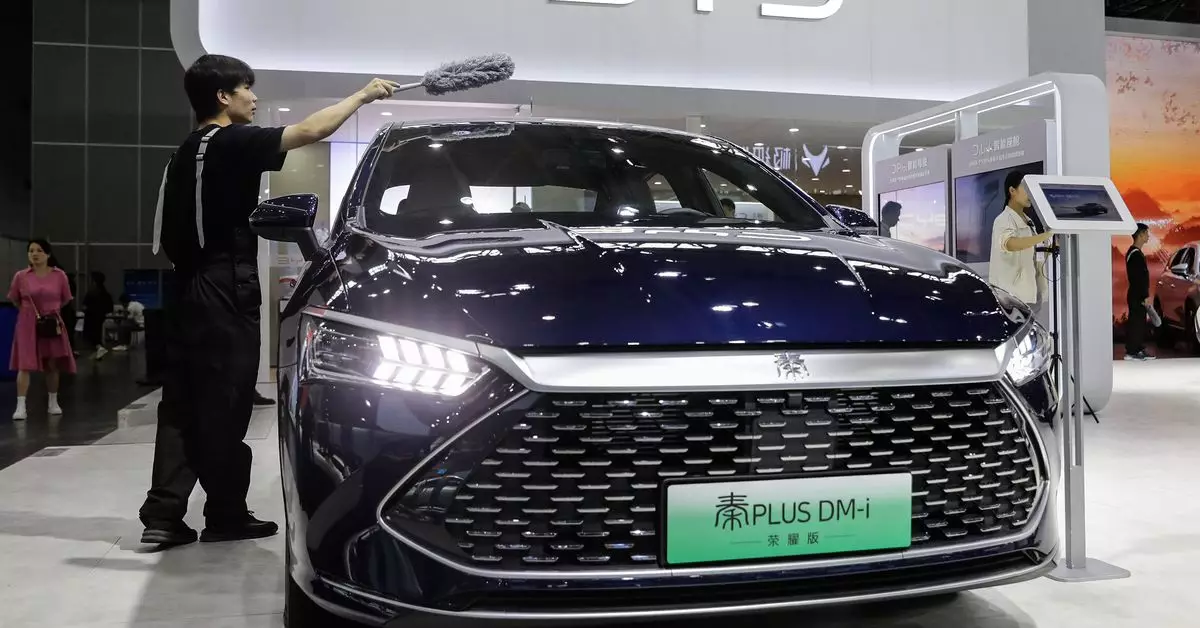The intersection of national security and international trade is becoming increasingly complex, especially in the United States’ automotive sector. With the rise of electric vehicles (EVs) and connected technologies, the Biden administration has proposed stringent regulations aimed at mitigating potential threats. These regulations primarily target vehicle software originating from countries deemed as national security concerns, particularly China. This move is emblematic of a broader strategy to safeguard American interests while grappling with the realities of a rapidly globalizing automotive market.
At the heart of the Biden administration’s proposal is a critical examination of connected vehicle technologies that utilize software developed outside the US. Vehicles equipped with hardware and software from China have raised alarms regarding their potential for espionage and sabotage. The administration’s assertion that these vehicles could be remotely incapacitated on the road reflects a significant concern about vulnerability in increasingly automated transport systems. These proposed rules extend to all forms of connectivity – from Bluetooth and Wi-Fi to cellular and satellite technologies – signaling a comprehensive approach to securing the automotive infrastructure.
The ramifications of such regulations are not merely theoretical; they are grounded in an investigation initiated by the Department of Commerce earlier this year. The findings of this investigation necessitate a reevaluation of existing partnerships within the supply chain, potentially compelling American automakers to overhaul their current systems to eliminate foreign dependencies.
Compounding these regulatory changes are newly instituted tariffs targeting imports from China, including a staggering 100 percent duty on electric vehicles. Such tariffs are designed to protect local manufacturers but risk pushing up prices for consumers. The fact that Chinese manufacturers, such as BYD, have achieved unprecedented success with budget-friendly EVs complicates matters. For instance, the BYD Seagull, priced around $10,000 and offering reasonable range, poses a formidable competitive threat even in the face of heavy tariffs.
The U.S. automotive sector’s apprehension is palpable, particularly among domestic auto executives who fear that without these protective measures, American manufacturers could face extinction in a burgeoning market. The recent remarks from Tesla’s CEO, Elon Musk, encapsulate this quandary. While he initially asserted that unrestricted Chinese competition could “demolish” the U.S. auto industry, he later clarifies his stance against tariffs, reflecting the often contradictory nature of business strategy in relation to policy.
The geopolitical landscape is further complicated by China’s response to these U.S. regulations. Chinese officials have accused the U.S. of misusing national security arguments to inadvertently stifle competition. This scenario underlines the delicate balance that the Biden administration must maintain. Economic restrictions aimed at enhancing national security may inadvertently isolate the U.S. from major global innovations in automotive technology, especially as countries worldwide continue to advance in EV research and development.
The proposed rules, set to take effect in the years 2027 and 2030 for software and hardware, respectively, may also influence federal EV tax credits — an additional challenge for American consumers who may find themselves paying more for locally assembled vehicles due to reduced competition.
The proposed measures have received support from industry advocacy groups, including the Autonomous Vehicle Industry Association. Leaders within this space underscore the necessity of prioritizing national security; however, the practical implementation of such policies raises questions about their implications on innovation and consumer choice within the automotive market.
As the landscape of vehicle manufacturing continues to evolve, the U.S. government must tread carefully between ensuring security and fostering innovation. The balance of protecting American jobs while embracing the wave of technological advancements will ultimately dictate the future of the U.S. automotive industry. This situation highlights that fostering a competitive domestic market is essential, but it must not come at the expense of losing touch with global technological developments that could beneficially influence the industry.
The chess game unfolding between the U.S. and China in the automotive sector reveals deeper issues surrounding trade, security, and technology. For American consumers and manufacturers, the outcomes of these policies could signal not only who leads the future of automotive innovation but also how national security considerations shape the marketplace of tomorrow.


Leave a Reply